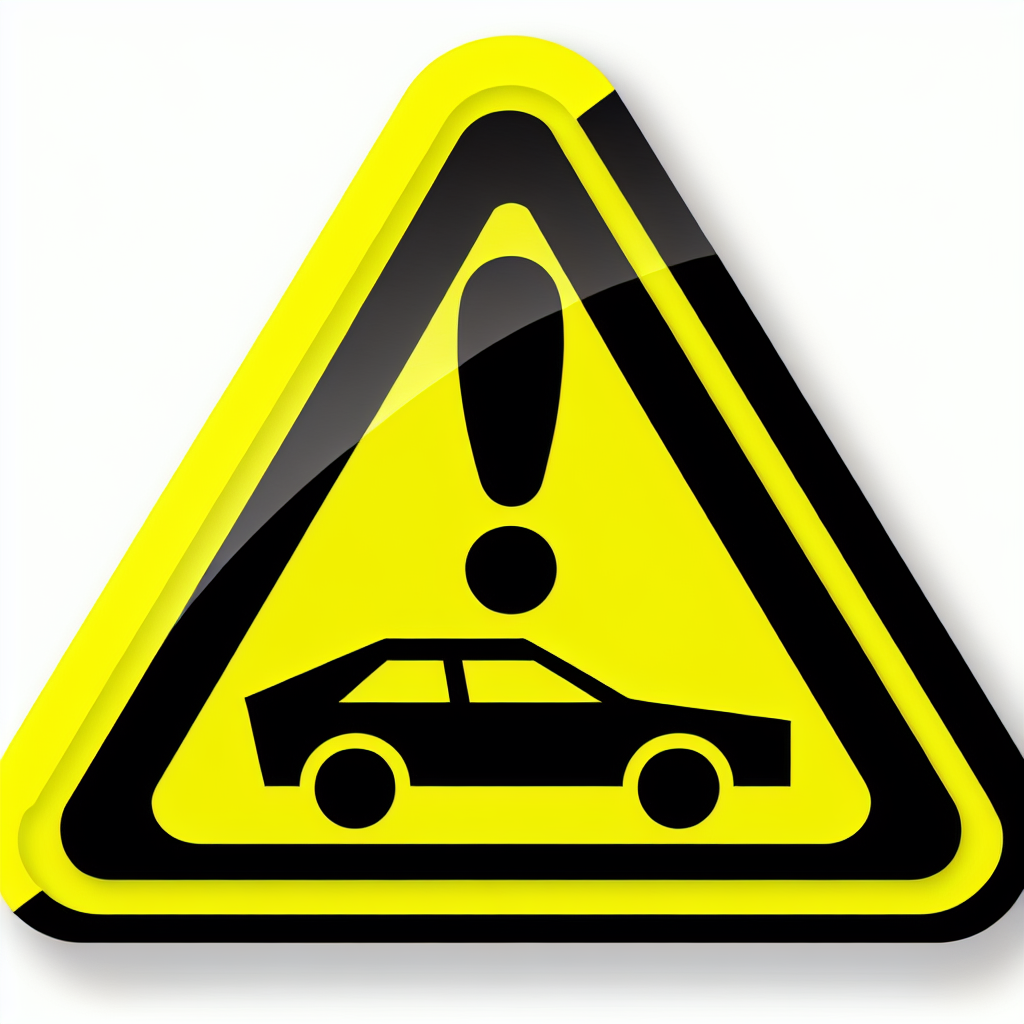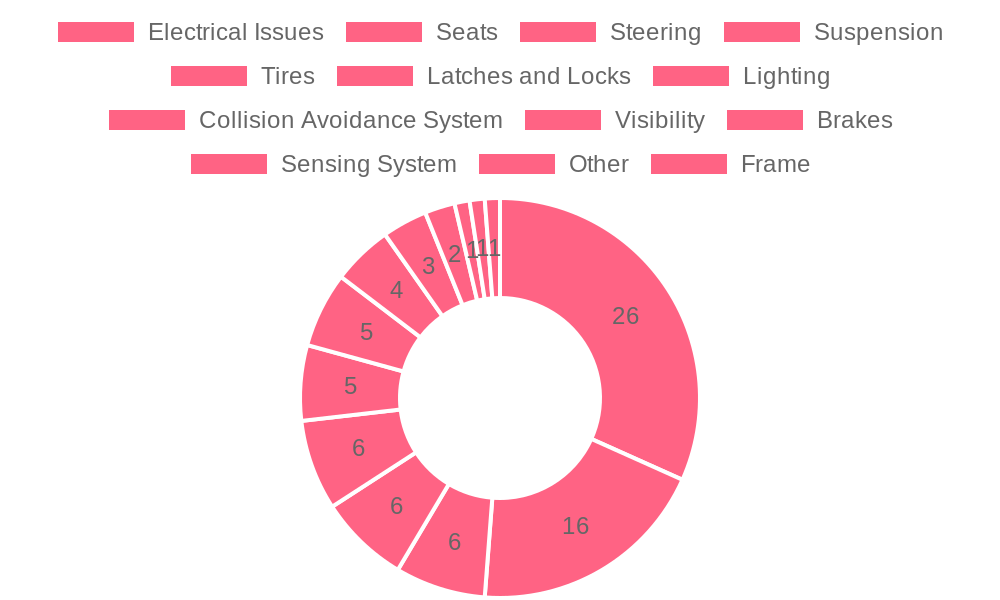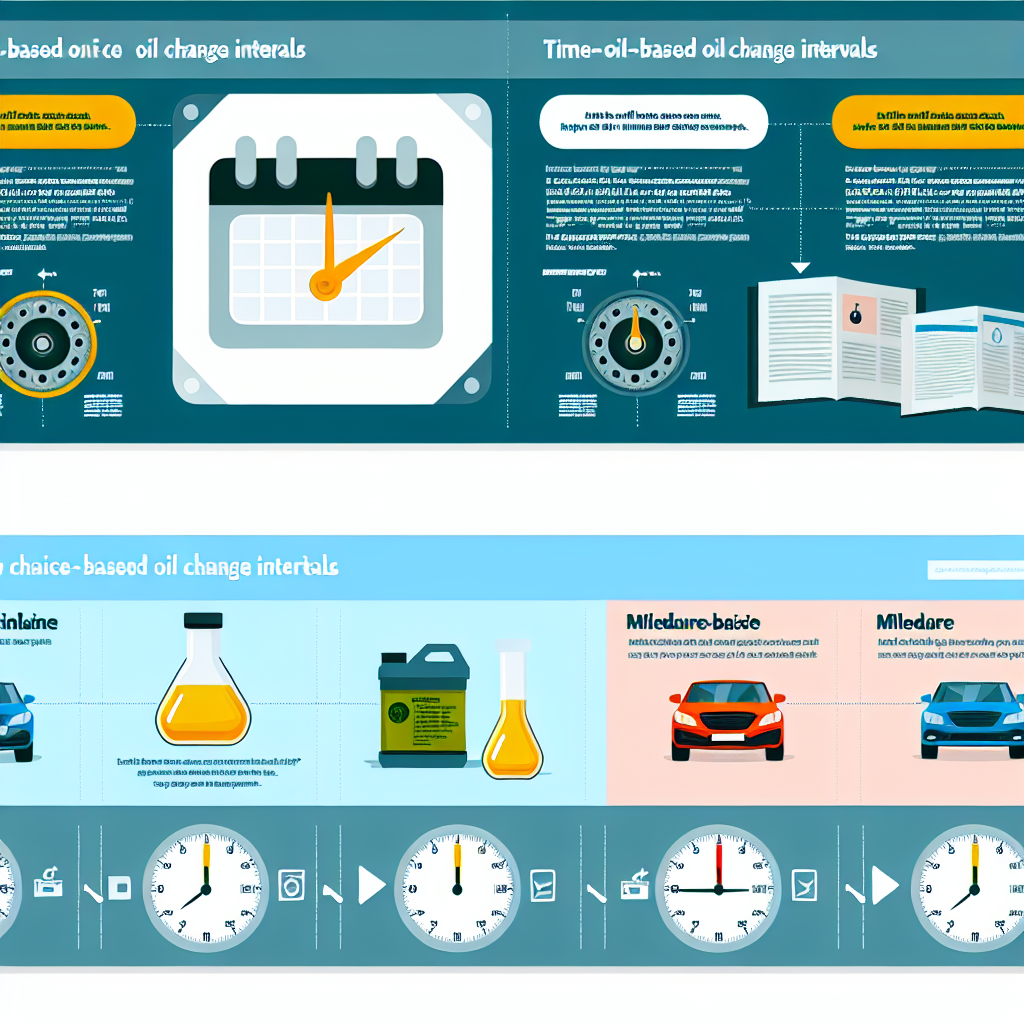In recent years, the automotive industry has faced heightened scrutiny over recalls and electrical issues, particularly concerning electric vehicles like the Tesla Model Y. Tesla owners are finding themselves in increasingly precarious situations as investigations into the Model Y’s safety continue to mount.
The National Highway Traffic Safety Administration (NHTSA) has revealed alarming findings, such as claims from multiple Model Y owners who reported troubling incidents where their doors could not be opened from the outside, raising serious safety concerns—especially for children locked inside. With over 174,000 models potentially affected and numerous complaints related to this issue, it is crucial for Tesla owners to stay informed and proactive.
As the investigations intensify, understanding the implications of these recalls and the overall safety of the vehicle becomes a pressing matter for all stakeholders involved. The Tesla Model Y investigation underscores the need for transparency in addressing these electrical problems; the urgency to act is paramount as owners navigate the complexities of recalls and safety protocols.
Implications of Recalls
The implications of recalls can be grave, particularly when it comes to the performance and safety of vehicles like the Tesla Model Y. With approximately 174,000 models potentially affected by electrical issues, the urgency to address these concerns cannot be overstated. Delays in dealing with recalls can lead to serious safety hazards. For instance, reports of door handle malfunctions contribute to the risk of occupants being unable to exit the vehicle, which is especially alarmingly if children are locked inside.
The nine customer complaints reported, while appearing minimal, may not accurately reflect the scope of the problem. Many incidents can go underreported, leading to a larger number of affected vehicles than is publicly acknowledged. The risk of these electrical failures escalates with time, meaning the longer Tesla owners wait for a remedy, the more potential danger exists.
Moreover, recalls do not only affect the immediate safety of the vehicle; they also have broader implications for the brand’s reputation. As an industry leader, Tesla is under a microscope, and how they handle these recalls will significantly impact consumer trust. Hence, it is essential for manufacturers to act swiftly and transparently in resolving these issues to ensure the well-being of their customers and uphold their credibility in the automotive market.
Addressing electrical problems promptly is not just a matter of compliance; it is a moral obligation to protect the safety of all vehicle occupants. Owners are encouraged to remain vigilant and proactively seek solutions as the investigation unfolds, ensuring their safety and the safety of others on the road.

Instances of Recalls Affecting Electric Vehicles
Electric vehicle recalls have become increasingly relevant, particularly as manufacturers face scrutiny over electrical system problems. Here are some notable instances that reveal common problems and user experiences among electric vehicles, especially focusing on Tesla’s Model Y:
-
Chevrolet Bolt EV Recalls:
- General Motors (GM) has executed extensive recalls, including one impacting every Chevrolet Bolt made due to concerns about potentially defective LG batteries that could lead to fire hazards. This manufacturing defect involves a torn anode tab which can result in thermal runaway. After a series of vehicle fires reported by owners, GM initiated multiple rounds of recalls and established a $150 million fund to compensate affected Bolt owners. Those that had received battery replacements or diagnostic software updates could qualify for compensation of up to $1,400.
- Another recent recall involved 107 models due to fire risks linked to potential failures in diagnostic software installation when battery charging was utilized at maximum capacity.
-
Nissan Leaf:
- The early Nissan Leaf models dealt with multiple software management problems that led to early battery degradation. The battery management system’s frequent failures meant many owners had to visit dealerships for software solutions, demonstrating a recurring theme regarding the inefficiency of software updates and their impact on owner experiences.
-
Tesla Model Y and Other Tesla Models:
- Tesla’s Model Y and other models have recently come under scrutiny for various electrical issues. In October 2023, about 54,700 Teslas were recalled, including the Model X, due to a malfunctioning brake fluid warning light, while ongoing investigations into the Model Y focus on reported door handle problems preventing the vehicle’s exit, posing severe safety risks. Multiple user reports indicate critical situations where occupants were unable to exit the car, particularly alarming with children in mind.
Common themes among these recalls highlight the critical nature of vehicle electrical systems in ensuring safety and reliability. The potential consequences of system failures in electric vehicles emphasize the urgency for manufacturers to actively resolve these issues, thereby maintaining consumer trust and safety.
How to Identify Electrical Issues in Tesla Model Y
Tesla Model Y owners should be vigilant about identifying early symptoms of electrical problems which may indicate underlying issues requiring timely attention. Here are specific signs to look for, based on NHTSA investigations and recent recalls:
-
Inoperative Electronic Door Handles:
- Symptoms: If you find that the electronic door handles do not respond as expected or struggle to open, pay attention. Reports have shown that some owners were unable to open the exterior doors even after exiting the vehicle, particularly concerning in emergency situations.
- What to Do: Familiarize yourself with the manual door release option, and contact Tesla if this issue occurs.
-
Power Steering Irregularities:
- Symptoms: Unusual stiffness or resistance when steering, especially during low-speed maneuvers, can indicate a potential issue with the power steering system. If you experience a sudden loss of power steering assist, it becomes challenging to maintain control of the vehicle.
- What to Do: Stay alert for dashboard warnings related to steering issues, and contact a service center urgently if these problems arise.
-
Hood Latch Failures:
- Symptoms: In some cases, the hood may not latch properly after being opened, resulting in it potentially obstructing your view while driving. This could lead to a dangerous situation where the hood may open unexpectedly.
- What to Do: Ensure your hood is properly secured after closing and monitor for any dashboard alerts regarding the hood latch. Tesla has issued over-the-air updates to address these issues where applicable.
Early Action Recommendations
- Prompt Reporting: If you notice any of the above symptoms, it is crucial to report them to Tesla as early as possible.
- Stay Updated: Regularly check for recalls or software updates to your vehicle that may address known issues.
- Be Prepared: Know the manual controls for your vehicle features to ensure safety during any electronic failure.
By remaining observant and proactive, Model Y owners can mitigate risks and ensure their vehicles operate safely. The information provided also emphasizes the importance of following manufacturer guidelines and seeking prompt repairs for any identified issues.
| Vehicle Type | Number of Recalls | Recall Rate per 1,000 Vehicles |
|---|---|---|
| Tesla (2024) | 5.1 million | 62.4 |
| Average Conventional | 22 million | 4 |
| Ford (2024) | 67 recalls | 14.1 |
| Chevrolet (2024) | 39 recalls | 8.1 |
This table compares the recall rates between electric vehicles, specifically Tesla, and conventional vehicles. The Tesla recall rate is significantly higher due to the introduction of advanced technologies which have led to several recalls. For clarity, the average conventional vehicle experiences about four recalls over its lifetime, in contrast to an estimated 62.4 recalls projected for Tesla models over a similar timeline.
Additionally, Tesla has achieved a 98% recall completion rate indicating effective resolution of issues.
How to Seek Repairs for Recalls
If you own a Tesla Model Y and need to address a recall, follow these essential steps to ensure your vehicle is repaired effectively and promptly:
- Verify Recall Status: Before taking any action, confirm whether your vehicle is affected by a recall. You can do this by entering your Vehicle Identification Number (VIN) in Tesla’s VIN Recall Search tool or the NHTSA VIN Recall Search tool. Knowing your recall status is crucial for planning the next steps.
-
Schedule a Service Appointment: If your Model Y is subject to a recall, arrange a service appointment through the Tesla app. Here’s how to do it:
- Open the Tesla app.
- Tap on ‘Service’.
- Select ‘Request Service’.
- Choose ‘Other’ and then ‘Something Else’.
- In the ‘Describe Concern’ field, specify “Open Recall Repair – [insert specific recall issue or description]”. This will help the service center prepare for your visit.
- Understand Warranty Coverage: Tesla’s vehicles come with a 4-year or 50,000-mile Basic Vehicle Limited Warranty. Recall-related repairs are performed at no cost to you, regardless of the vehicle’s age or mileage. Make sure to read up on how your warranty works and know that these repairs are covered as part of Tesla’s commitment to customer safety.
- Prepare for the Service Visit: Before your scheduled appointment, ensure your vehicle is adequately charged, and remove any personal items from the areas requiring servicing. Tesla service centers aim to complete recall repairs promptly, often in a single visit.
- Unique Considerations for Tesla Owners: As an electric vehicle, the Model Y includes components and systems that may differ from traditional vehicles. Tesla service technicians are specially trained to address these unique features, ensuring repairs adhere to the necessary standards. It’s advisable to communicate any concerns or symptoms you may have observed to the service technicians to enable thorough inspections.
By following these steps, you can efficiently manage recall repairs for your Tesla Model Y, maintaining the safety and performance of your vehicle. Immediate action not only benefits your vehicle but also contributes to the overall safety of all road users.

Conclusion: Stay Informed and Prioritize Safety
As a Tesla Model Y owner, it is imperative to stay informed about the various recalls affecting your vehicle. The recent surge in safety investigations regarding electrical problems highlights a pressing need for vigilance. With incidents like the malfunctioning electronic door handles and power steering issues coming to light, it is critical that you understand the implications these recalls have for your safety and that of your passengers.
Timely repairs are not just a preference; they are essential to ensure that your vehicle operates safely and effectively. Regular maintenance and prompt reporting of any suspicious symptoms can prevent potential emergencies. Familiarize yourself with your vehicle’s recall status through Tesla’s official resources, and do not hesitate to seek repairs for any identified issues.
By taking these proactive steps, you not only safeguard your own well-being but also contribute to the overall safety of other road users. Your commitment to vehicle safety is a responsibility that shouldn’t be overlooked in light of the ongoing investigations surrounding the Model Y. Stay informed, act quickly, and drive with confidence knowing that your safety is the priority.
Expert Insights on Vehicle Recalls
Understanding the implications of vehicle recalls and safety investigations is vital for both manufacturers and owners. Industry leaders emphasize the importance of swift action in response to safety concerns, reinforcing the seriousness of these situations.
Jim Farley, CEO of Ford Motor Company, emphasizes the commitment to quality control. He stated, “After three years of hard work fixing all of our deficits… we now have everything in place to really see our quality turn for our customers and for our business.” This highlights the need for manufacturers to address issues proactively to maintain consumer trust.
Heidi R. King, former Deputy Administrator of the NHTSA, pointed to the collaborative efforts needed to improve recall repair rates, saying, “The automotive industry was built on innovation, and many in the industry have recently made strides to bring that innovation to recalls.” This underscores that innovation can enhance safety and streamline the recall process, ensuring better protection for vehicle occupants.
Moreover, McKinsey & Company noted that quality improvement programs can have significant benefits, stating that these initiatives “will typically reduce quality costs by 10 to 15 percent and dramatically improve the organization’s response time and customer satisfaction in the event of a recall.” This demonstrates that effective management of recalls not only safeguards safety but also enhances a brand’s reputation and financial performance.
These expert perspectives serve to reinforce the critical nature of timely and transparent responses to recalls, ultimately prioritizing safety and trust in the automotive industry.
Real Experiences from Tesla Model Y Owners
Tesla Model Y owners have shared personal experiences regarding recalls and electrical issues, highlighting the emotional and practical impacts these problems have had on their lives.
- Nedyalko Gerontiev, a Model Y owner from Washington, D.C., recounted:
“While at the beach, the vehicle suddenly displayed error messages about cabin climate control and became undrivable.”
This incident left his family stranded in 100-degree heat, underscoring the dangers of unexpected vehicle failures.
- Eddie Fritz, another Model Y owner, expressed disappointment about his vehicle’s delivery:
“The paint repair was poor; the touch-up looked blotchy, like whiteout. There was a deep scratch on another door and a stain on the passenger seat.”
This experience led him to reject his new vehicle, reflecting broader concerns about manufacturing quality.
- A different owner described a series of persistent problems, resulting in Tesla repurchasing their vehicle under California’s lemon law due to extensive electrical issues.
These personal accounts serve to reinforce the critical nature of timely and transparent responses to recalls, ultimately prioritizing safety and trust in the automotive industry.
By integrating both expert insights and personal experiences, this section emphasizes the significant impact of recalls on the lives of owners, making it clear that safety needs to be the utmost priority for manufacturers.
Understanding the Importance of Electric Vehicle Safety and the Tesla Recall Process
As electric vehicle safety continues to gain attention, understanding the Tesla recall process is essential for owners, especially of the Model Y. The recalls highlight critical issues related to electrical systems and vehicle safety, which can significantly impact performance and occupant safety.
In recent years, the automotive industry has seen an increase in recalls due to electrical issues, underscoring the importance of prompt action in the Tesla recall process. With various incidents reported, including malfunctioning electronic door handles and issues in power steering systems, owners of electric vehicles like the Tesla Model Y must remain vigilant. Recognizing early symptoms of these problems, as discussed in previous sections, is crucial in ensuring that safety is prioritized.
Tesla’s approach to recalls is notably proactive, utilizing over-the-air software updates to address certain issues swiftly without requiring owners to visit a service center. However, for hardware problems that could pose safety risks, such as those outlined in the mention of faulty brake fluid warning lights or battery contactors, in-person inspections and repairs are required.
Additionally, understanding the implications of these recalls helps reinforce consumer trust. As highlighted in industry reports, the nature of vehicle recalls significantly affects electric vehicle safety perceptions. It becomes particularly crucial for manufacturers like Tesla to act transparently and swiftly to ensure that safety concerns are adequately addressed while fostering customer confidence.
Incorporating insights from recent articles can further illustrate the importance of staying informed about electric vehicle safety. With the increasing reliance on advanced technologies in EVs, keeping abreast of any updates regarding the Tesla recall process can safeguard both owners’ well-being and broader community safety.



